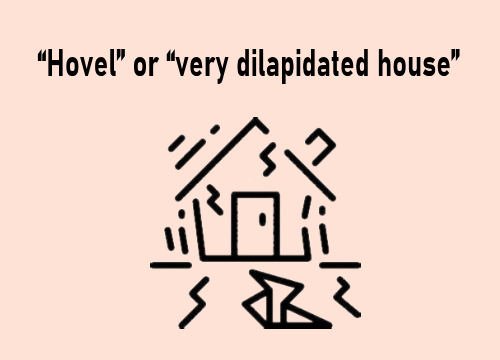Good English speakers and writers prefer to use a “rich noun” (sustantivo rico) rather than some adjectives. Examine this example:
- Mr. Podemos lives in a hovel (casucha, choza). You could write ……lives “in a very dilapidated house” (5 words) or…lives “in a house which is in terrible condition” (7 words). “In a hovel” = 3 words.
“Hovel” is a rich noun, and it is always better to use a rich noun than use many more words.
Keep it simple and short is a basic rule for communications. Life is short, so why waste your time (and that of others) with long and unnecessary sentences?
Here are more examples:
- Mr. Sanchez lives in a very luxurious house (8 words). The better option? Mr. Sanchez lives in a palace (6 words).
- I used to live in a slum (barrio bajo). Compare this to: “I used to live in a street of squalid (miserable) houses. 7 words or 10 words? You know the answer.
- Isidoro´s painted ceramic vase “is a gem” (alhaja). You could write: Isidoro´s painted ceramic vase “is wonderfully crafted and special”. Here we have 3 words versus 5.
So, always try to use a rich noun instead of some adjectives.

















